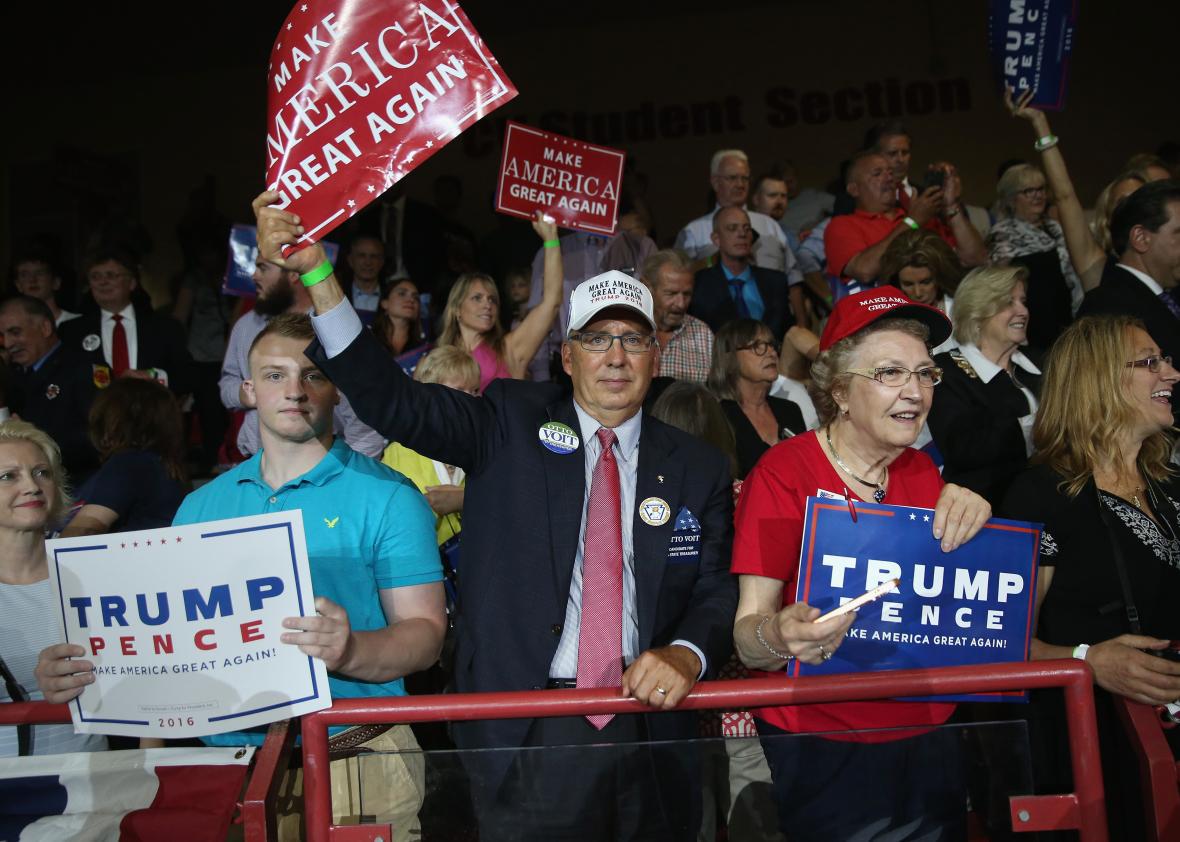A new Gallup working paper on Donald Trump supporters has exposed critical parts of the prevailing narrative about Trump’s rise as myths. According to the Washington Post’s write-up, the study—based on more than 87,000 interviews Gallup has done with Trump supporters over the past year—reveals that Trump supporters have not been significantly adversely impacted by trade or immigration, the two issues that have been the focal points of the Trump campaign. From the Post:
The Gallup analysis is the most comprehensive statistical profile of Trump’s supporters so far. Jonathan Rothwell, the economist at Gallup who conducted the analysis, sorted the respondents by their Zip code and then compared those findings with a host of other data from a variety of sources. After statistically controlling factors such as education, age and gender, Rothwell was able to determine which traits distinguished those who favored Trump from those who did not, even among people who appeared to be similar in other respects.
Rothwell conducted this kind of analysis not only among the broad group of Americans polled by Gallup. He was also able to focus specifically on white respondents, and even just on white Republicans. In general, his results were the same regardless of the group analyzed.
Rothwell’s analysis found that those who support Trump are more affluent than those who do not and that Trump supporters may even be more affluent than generic white Republicans, who tend to earn more than most Americans. Trump supporters are also only slightly more likely to be unemployed than all nonsupporters when controlling for geography and other factors, but are no more likely to be so than whites or white Republicans.
The study also suggests that while blue-collar workers with low levels of education are significantly more likely to support Trump, those workers are not, for the most part, factory workers who have been hit by trade and the decline of American manufacturing. “The Gallup analysis shows that Americans who live in places where employment in manufacturing has declined since 1990 are not more favorable to Trump,” the Washington Post’s Max Ehrenfreund and Jeff Guo write. “Rothwell did not find a relationship when he focused only on white respondents, either, or even specifically on white Republicans.” In fact, Rothwell writes in the study that Trump attracts less support in regions where trade has had a greater impact on manufacturing. “Surprisingly, there appears to be no link whatsoever between exposure to trade competition and support for nationalist policies in America, as embodied by the Trump campaign,” he says.
But Rothwell also writes that there is genuine malaise at the heart of at least some support for Trump—blue-collar workers without college degrees obviously fare worse in the economy than other Americans. Additionally, those in areas where intergenerational mobility has fallen flat and where physical health has been poor were more likely to have favorable views of Trump. Still, Trump’s abysmal numbers with minorities, including blue-collar minorities who have been faring similarly poorly to the blue-collar whites that back Trump, indicate that support for him is not purely economically motivated.
The study paints a similar picture on immigration. From the Post:
Although Trump voters tend to be the most skeptical about immigration, they are also the least likely to actually encounter an immigrant in their neighborhood.
Rothwell finds that people who live in places with many Hispanic residents or places close to the Mexican border, tend not to favor Trump—relative to otherwise similar Americans and to otherwise similar white Republicans.
Among those who are similar in terms of income, education and other factors, those who view Trump favorably are more likely to be found in white enclaves—racially isolated Zip codes where the amount of diversity is lower than in surrounding areas.
The study, of course, won’t change anything about the Trump campaign. As we’ve seen, imagined grievances make for good politics.
